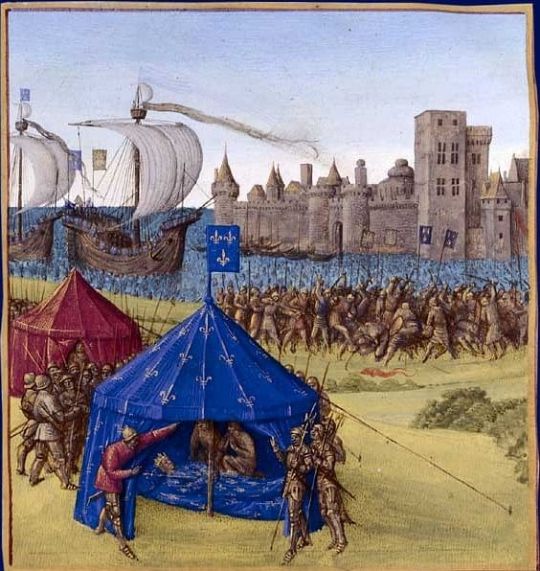#CharlesofAnjou
Explore tagged Tumblr posts
Photo

Eighth Crusade
The Eighth Crusade of 1270 CE was, like the Seventh Crusade (1248-1254 CE), led by the French king Louis IX (r. 1226-1270 CE). As previously, the idea was to attack and defeat the Muslims first in Egypt and then either reconquer or negotiate control of key Christian sites in the Levant, including Jerusalem. Tunis was decided upon as the first target, from where the Crusaders could then attack Egypt. The plan was dealt the fatal blow of Louis IX's death from illness in August 1270 CE, and the campaign was abandoned before it had even properly begun.
Louis IX & the Levant
Louis had led the Seventh Crusade, which had met with disaster at the battle of Mansourah in April 1250 CE. He had even been captured but later released after payment of a ransom and the concession of Damietta on the Nile River. Louis had then stayed in the Levant for four years when he refortified such key Latin strongholds as Acre. 16 years later, the French king once more turned his attention to the Middle East, his second bite at the crusading cherry.
Louis had been sending funds annually to the Latin states in the Levant in the intervening years since his botched first crusade, but the rest of Europe was rather preoccupied with affairs elsewhere. In England, a civil war raged (1258-1265 CE), and the Popes were in constant battle with the Holy Roman Empire over control of Sicily and parts of Italy. It seemed that nobody cared very much for the fate of Holy Sites in the Middle East.
In the Middle East, meanwhile, the situation for the Christian cities looked bleak. The Mongol Empire, seemingly intent on total conquest everywhere, was moving closer and closer to the Mediterranean coast. In 1258 CE Baghdad, the seat of the Abbasid Caliphate, was captured, followed by Ayyubid-controlled Aleppo in January 1260 CE and Damascus in March of the same year. It looked very much like the Crusader states might be next in line when the Mongols made raids on Ascalon, Jerusalem, and northern Egypt. When a Mongol garrison was established at Gaza, an attack on Sidon quickly followed in August 1260 CE. Without outside help, Bohemund VI of Antioch-Tripoli was obliged to accept subservience to the Mongols and permit a permanent garrison to be established at Antioch.
Continue reading...
32 notes
·
View notes